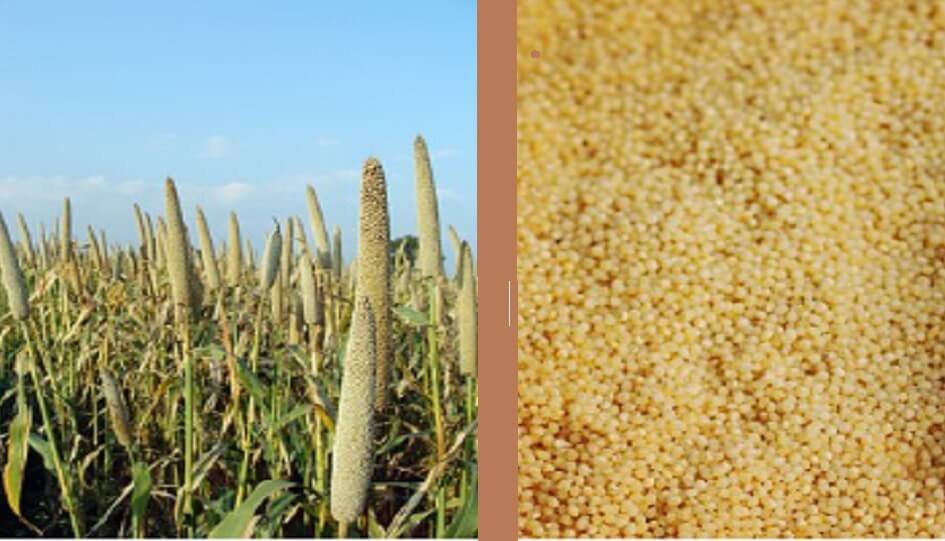Karnataka introduces millets incentive scheme for horticultural exports
Karnataka announced plans to incentivize Millets production, as well as launch new programs to encourage horticulture processing and exports and put additional land under organic and natural farming in the state.
Karnataka chief minister Basavaraj Bommai announced an incentive of ₹10,000 per hectare for increasing minor millets production under the ‘Raithasiri’ scheme in his budget presentation for 2023–24. He also increased the limit on interest-free short-term loans to farmers from ₹3 lahks to ₹5 lahks this year.
‘Karnataka is at the cutting edge of millets cultivation. As part of the International Year of Millets, minor millets growers will be given a ₹10,000 per hectare incentive under the ‘Raithasiri’ scheme to encourage area growth, production, and productivity. Aside from that, Bommai says that the new “Mukhyamanthri Raitha Unnathi Yojane” would give priority to farmer-producer organizations that process, grade, and pack their crops on the field level.
Also Read | Food Corporation of India sold 3.85 LT wheat in second round of e-auction
At a cost of ₹100 crores, the ‘Raitha Sampada’ initiative would be launched by KAPPEC (Karnataka State Agricultural Product Processing and Export Corporation) to encourage the processing and export of agricultural and horticultural produce. Karnataka, a major producer of horticultural products, now has 26.21 lakh ha under cultivation, with an output of 242 million tonnes valued at ₹66,263 crores. Bommai further stated that Apical Root Culture Technology will be made available to farmers at a fair cost in order for them to achieve self-sufficiency in potato seed farming. Potato seed from the northern states is being imported for potato growing.
Scheme of One Farm, One Crop
The ‘One farm, One crop’ strategy will be adopted across the department’s 12 horticultural farms. Based on the agroclimatic conditions, the right crops will be found, and research and demonstration will be done to increase productivity. “A one-time award of ₹10 crore would be made available for this,’ he said.
Bommai said that organic and holistic farming will be done on a cluster model on 50 hectares of land in each taluk of the state over the next four years. This is in addition to the Center’s plan to get one crore farmers to do organic farming.
Conservation of water
In addition, a new project called ‘Jalanidhi’ would be started to enhance subsurface water levels by constructing farm ponds on farmers’ properties. By combining this with the MGNREGA scheme, all farmers will be encouraged to build farm ponds on their own land.
Horticulture
While establishing a horticulture college in Tiptur, the chief minister also gave a ₹10 crore grant to the Agricultural and Horticulture Research Centre at Theerthahalli to develop new technology for the management of diseases affecting arecanut crops and to increase productivity. He also stated that a grant of ₹100 crores will be given to the Karnataka Grapes and Wine Board to help grape growers with various activities.
Also Read | Eliminate Urea; natural farming achievable with one cow on 21 acres: Amit Shah
Karnataka has allocated a grant of ₹39,031 crores to the Agricultural and allied activities sector for the fiscal year 2023–24. ‘The limit of interest-free short-term credit offered to farmers would be enhanced from ₹3 lahks to ₹5 lakh starting this year. This would make it easy for farmers to get the money they need to make the preparations they need for their farms, Bommai said. Almost 30 lakh farmers would receive loans totaling ₹25,000 crores this year.’
‘We have decided to grant an additional subsidy of ₹10,000 in 2023-2024 under the new plan ‘Bhoo siri’ for Kisan Credit Card holders. This would make it easier for farmers to purchase seeds, fertilizer, insecticides, and other agricultural supplies in times of need. ‘The state will contribute ₹2,500, and NABARD will contribute ₹7,500, and this will assist around 50 lakh farmers in the state,’ he added.


















Add Comment